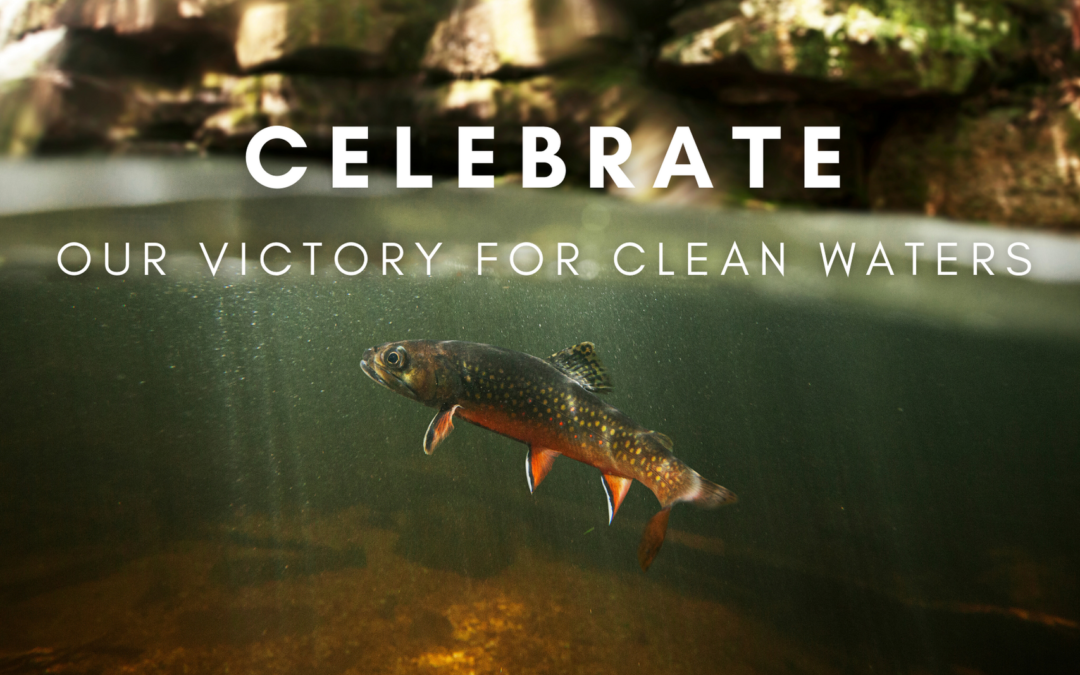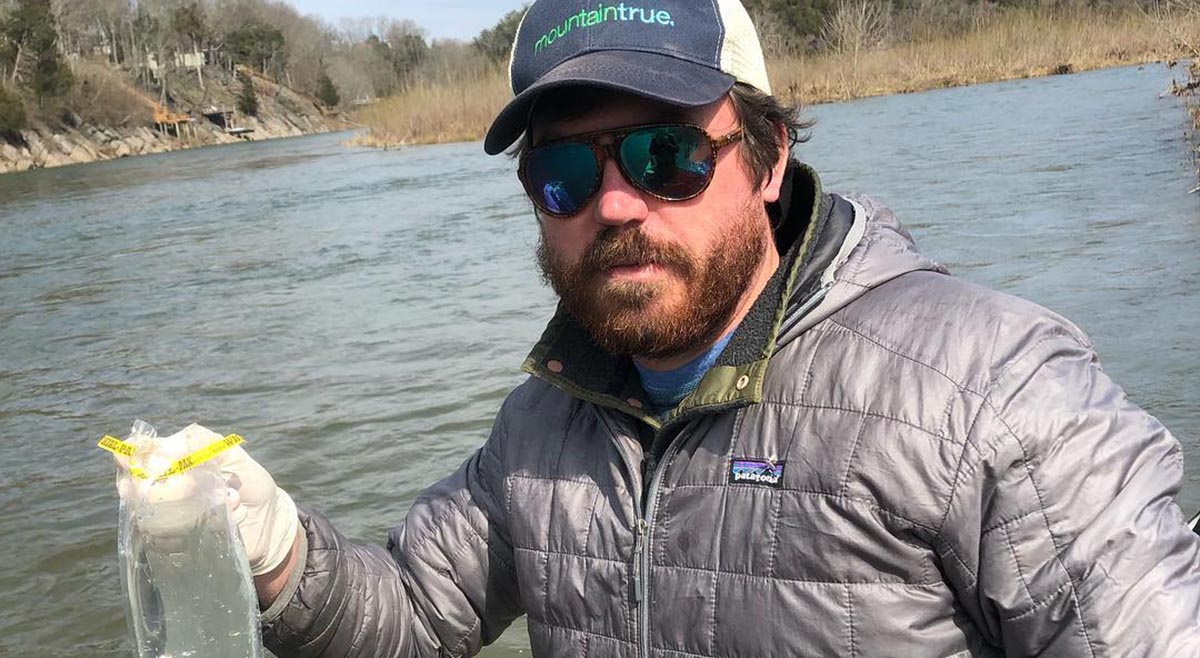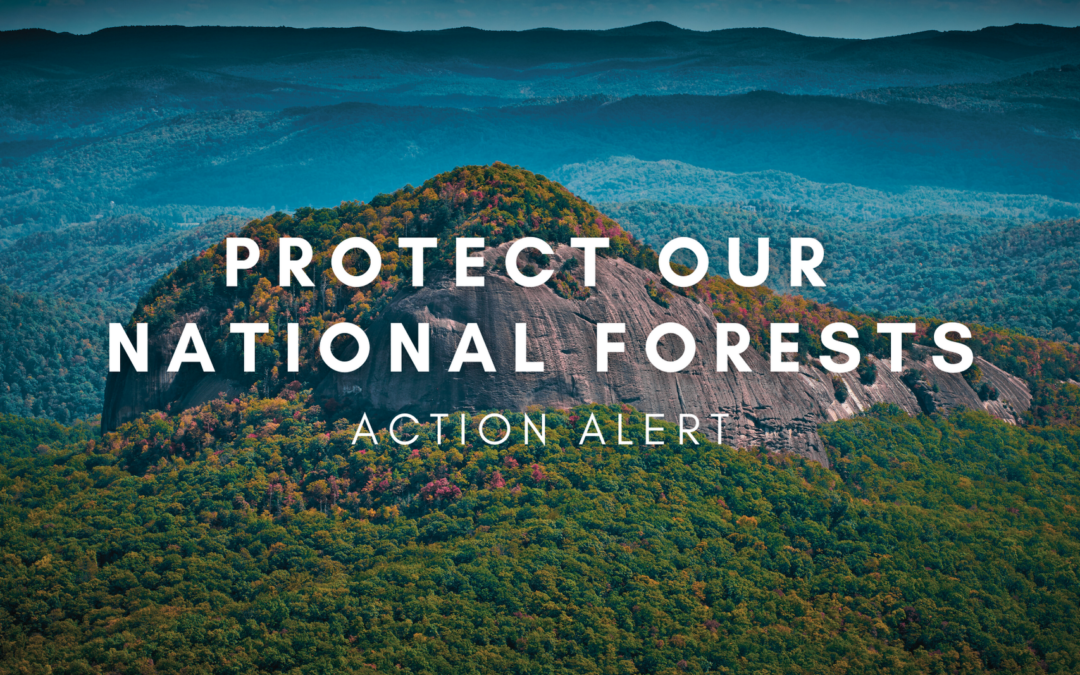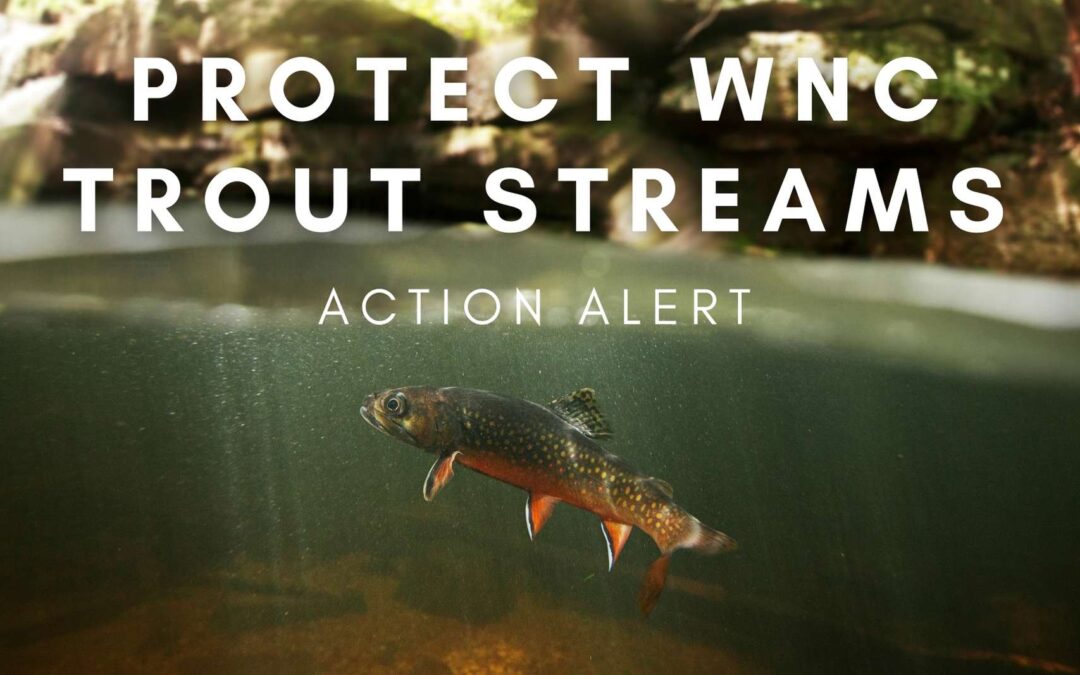
MountainTrue to expand river access and knowledge with grant from MADE X MTNS
MountainTrue to expand river access and knowledge with grant from MADE X MTNS
MountainTrue is proud to announce that we are one of twenty grant recipients of the MADE X MTNS Outdoor Equity Fund. We join a group of small businesses, community groups, and nonprofits working to increase outdoor access and economic opportunity in Western North Carolina. Thanks to the generosity of the MADE X MTNS, MountainTrue will be able to lead more paddling trips on the French Broad Paddle Trail, share ecological and skill-building knowledge that centers Leave No Trace ethics, and provide important conservation information about the trail with organizational partners and event participants.
“As residents of Western North Carolina, we’re fortunate to work and play in such a beautiful area with ample opportunity to enjoy public lands and rivers. However, we recognize that there are several barriers keeping certain communities from these places — especially rivers — including access to gear, logistics, confidence in safety, and concern for environmental dangers,” says MountainTrue’s French Broad Paddle Trail Manager, Jack Henderson. “With funding from the MADE X MTNS Outdoor Equity Fund grant, we’re excited to help break down some of these barriers by offering equitable paddling opportunities to communities of color in Transylvania and Henderson Counties. We hope this is just the first step towards ensuring that everyone in this region has access to the French Broad Paddle Trail, along with other outdoor recreational endeavors.”
So far, six separate paddling trips have been planned for 2023-2024, with more likely to be scheduled. MountainTrue’s current partners include Find Outdoors’ Club de Exploradores, El Centro of Transylvania and Henderson counties, Latinos Aventureros, and the North Carolina BIPOC Climbers network. Click here to read more about the Outdoor Equity Fund and all fellow grantees, or read more below.
MADE X MTNS Announces Outdoor Equity Fund Grant Awardees
MADE X MTNS funds twenty community-led initiatives that address identified barriers to outdoor recreation access and outdoor economic opportunity.
WESTERN NORTH CAROLINA (August 3, 2023) – MADE X MTNS is thrilled to announce the grant recipients of its Outdoor Equity Fund. The twenty grantees represent small businesses, sole proprietors, non-profits, and community groups, located across Western North Carolina’s 25 county footprint and the Qualla Boundary, all working to increase outdoor recreation access and economic opportunity.
“The energy and enthusiasm for shaking up the outdoor industry and making it a more inclusive space from the applicants is inspiring. These proposals aren’t just about changing the outdoor economy field; they’re about deeply remembering our connection to the outdoors and redefining who gets to play and thrive in the great outdoors,” says Outdoor Equity Fund Working Group Facilitator, Iliana Hernandez.
“We’re very excited about the potential impact of these projects and the outdoors becoming a place where everyone feels welcomed and communities can flourish,” she adds.
These grants have been made possible through $125,000 in funding from the Dogwood Health Trust, as part of the three-year “Accelerating Outdoors Grant” awarded to the MADE X MTNS Partnership (MADE X MTNS). The goal of The Outdoor Equity Fund is to help empower community-led initiatives that address identified barriers to outdoor recreation and outdoor economy access and opportunity, and help close these gaps in Western North Carolina.
“We are so inspired by the work of each grantee and the opportunity that this funding presents,” said MADE X MTNS Partnership Director, Amy Allison.
“Together, we can create a more inclusive and vibrant outdoor industry, unlocking the vast potential of diverse voices and experiences to drive entrepreneurship and economic growth, foster community wellness, and lead the way towards a more inclusive and sustainable future,” she adds.
Forty-four applicants, with a grand total of requested funds at $333,304.74 made up the inaugural grant submission cycle, affirming that there is a lot of work being done in the community to make WNC’s outdoor spaces more inclusive and accessible, that the need for more funding is apparent, and that there is excitement and motivation around increasing outdoor recreation access and outdoor economic opportunities.
Outdoor Equity Fund grantees include:
- Riding in Color Western North Carolina
- Activated Earth
- Latinos Aventureros
- The 30th Alliance
- UnSPOKEN Bond
- James Vester Miller Historic Walking Trail
- The Flying Bike
- Yadkin Valley Adventure
- BCOutdoors
- MountainTrue
- Blue Ridge Dirt Skrrts
- McDowell Trail School
- Catalyst Sports
- Christmount Adapted Programs
- Aflorar Herb Collective
- El Centro Brevard
- Michelle Black
- FINDOutdoors
- Issa Vibe Adventures, LLC
- Color My Outdoors
Find out more about each grantee’s project on the MADE X MTNS Website.
###
About WNC: MADE X MTNS Partnership
The WNC: MADE X MTNS (Made By Mountains) Partnership is working to expand the outdoor industry and economy across North Carolina’s Appalachian region and catalyze rural development by building vibrant outdoor communities, growing outdoor businesses, and amplifying outdoor culture. For more information, visit madexmtns.com or @madexmtns







